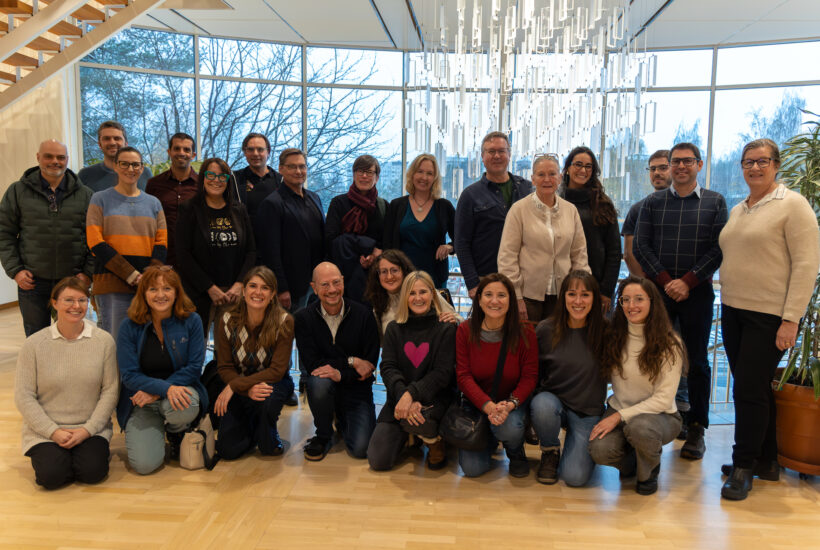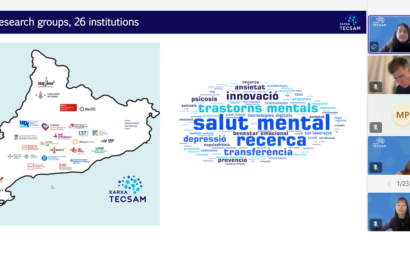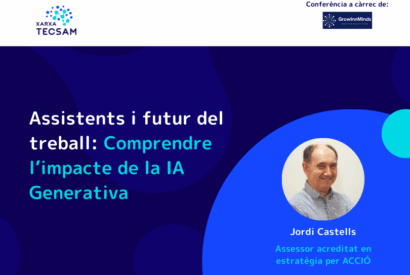The TECSAM Network promotes its first international mission to Sweden to strengthen research and innovation in mental health
The delegation, made up of researchers from different mental health projects in the Network, visited leading institutions in the Västerbotten and Norrbotten regions.

The TECSAM Network has successfully completed its first international mission to Sweden, a four-day trip (from November 11 to 13) with the aim of connecting Catalan research in mental health and digital innovation with the scientific and technological ecosystem of Northern Europe.
Day 1: Innovation in health, stress and cognitive aging in Umeå
The mission began at Umeå University with a presentation of the Northern Sweden Health Innovation System, led by representatives from the Västerbotten region and academia. This model aims to drive long-term public health projects, develop solutions for rural areas and integrate research and clinical practice in mental health.
Professor Lars Nyberg presented the renowned Betula project, a longitudinal study that analyzes aging, memory and dementia, highlighting the phenomenon of super-agers , adults who maintain high cognitive performance beyond the age of 80.
The delegation also learned about several projects focused on stress, neuropsychology and aging, such as the Ageing, Cognition and Other Study initiative , a digital tool for adult learning aimed at motivation and self-reflection. The day ended with a visit to the Department of Medical Technology at Norrland University Hospital (NUS).
Day 2: Literacy difficulties and the impact of AI in education (Umeå and Luleå)
During the second day, the delegation delved into educational research projects led by researchers Maria Levlin and Eva Lindgren, at Umeå University. Among them, Cracking the Alphabetic Code, a study that demonstrates the effectiveness of combining phonetic and morphological methods to improve reading in children with learning difficulties.
Research was also presented on the use of generative artificial intelligence in the writing of secondary school students, which reveals an increase in motivation and performance, although it highlights the need to provide teachers with more tools and strategies.
In the afternoon, the delegation visited the new geriatric center in Skellefteå, an example of how the integration of research, innovation and municipal services can improve care in rural and dispersed settings.
Day 3: Innovation, AI and personalized health at Luleå University of Technology
The third day, held at Luleå University of Technology, focused on applied research in physical activity, well-being and precision health. In the Movement Lab and the Activity Lab, the delegation of researchers learned about initiatives focused on physical activity, self-management of well-being and personalized health.
The team also explored AI projects applied to health and education, as well as the BRIDGE program, which promotes well-being in compulsory schools. The day ended with a presentation of ‘Natureach’, a project that works to make nature accessible to everyone, and with sessions on recovery approaches in mental health and online therapy (iCBT). The day concluded with a cultural visit to the heritage site of Gammelstad Church Town.
Day 4: Integration of research and clinical practice in the Norrbotten Region, Luleå
The last day of the mission was dedicated to learning about the research and innovation model of the Norrbotten Region. The Head of Research, Education and Innovation, Johanna Törmä, presented the Research School for Precision Health and Near Care, which promotes the integration of research into clinical practice and is committed to a holistic, interdisciplinary and person-centered approach.
During the visit, several projects with territorial impact were presented, such as the Feel Good Conversations initiative, which links physical and mental health, studies on executive functions and healthy aging, single-session transdiagnostic interventions for stress and anxiety, and new perspectives in mental health research in the territory.
A multidisciplinary delegation from the TECSAM Network
The representation of researchers has been formed by: Gil Serrancolí (MUVITY), Maite Garolera (C3-CST), Beatriz Olaya (EMPOWER), Marta Aymerich (eHealth Center at Universitat Oberta de Catalunya), Sara Domènech (LONG-REMI), Philippe Mortier (PERMANENS), Marina Peniza (AVATAR) and Llorenç Andreu (PICOFON).
A mission to strengthen alliances
This mission represents a key step for the TECSAM Network to establish new international collaborations, learn about pioneering models in the integration of research and clinical practice, and promote innovative projects in mental health with a global perspective.

